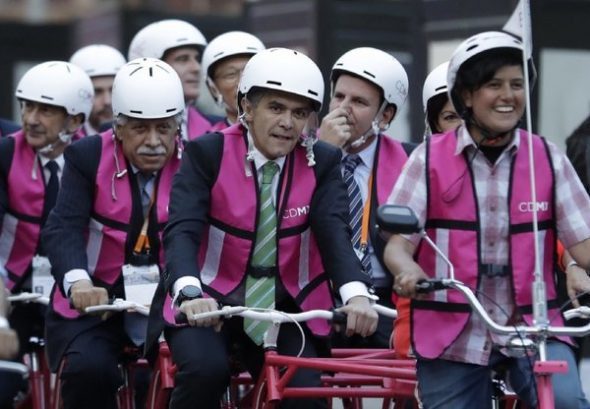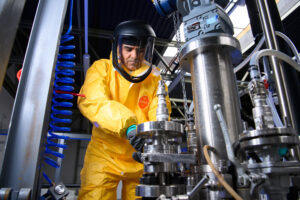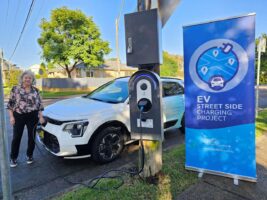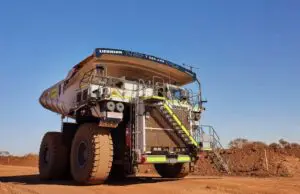
Paris, Madrid, Athens, and Mexico City will ban diesel engines by 2025, mayors of the four major world cities announced this week.
The announcement came as part of the biennial C40 conference. Cities have become major catalysts for addressing climate change, and through the C40 Cities Climate Leadership Group — a global initiative that brings cities together to plan and share best practices — thousands of climate actions have taken place.
“Mayors have already stood up to say that the climate change is one of the greatest challenges we face,” said Paris Mayor Anne Hidalgo, chair of the C40. “Today, we also stand up to say we no longer tolerate air pollution and the health problems and deaths it causes — particularly for our most vulnerable citizens. Big problems like air pollution require bold action, and we call on car and bus manufacturers to join us.”
Diesel is a particularly dirty form of transportation fuel. Over the past decades, the Environmental Protection Agency has cracked down on the amount of particulate matter, nitrous oxides (which create smog), and black carbon that diesel engines in the United States are allowed to emit.
“But because diesel engines can operate for 30 years or more, millions of older, dirtier engines are still in use,” the EPA says. “Reducing exposure to diesel exhaust from these engines is especially important for human health and the environment.”
A petition was launched in conjunction with the announcement calling on global car manufacturers to stop making diesel cars and trucks.
It was not immediately clear how the ban would be designed or enforced, but local laws — especially in large markets — can produce a domino effect. For instance, in the 1970s, California put in place vehicle emissions regulations that were more stringent than the federal regulations. Because California is such a large market, vehicle makers simply tailored their systems to meet the tougher regulations. Likewise, truck retailers in Mexico are likely to simply comply with the Mexico City regulations, rather than sell trucks that can’t go into the country’s largest city.
Mexico City has made major improvements in its air quality over the past decade — to huge benefits.
Since 2007, the city has shut down one of its biggest thoroughfares every Sunday, opening it to pedestrians, bicyclists, skateboarders, and rollerbladers, while sending a weekly message to drivers that alternative transportation gets precedent. It has also built out an extensive bikeshare program and is making improvements to bus and metro lines.
“It is no secret that in Mexico City, we grapple with the twin problems of air pollution and traffic,” said Mexico City Mayor Miguel Ángel Mancera. “By expanding alternative transportation options like our Bus Rapid Transport and subway systems, while also investing in cycling infrastructure, we are working to ease congestion in our roadways and our lungs.”
Transportation is a major source of pollution. In the United States, transportation recently overtook electricity as the largest source of greenhouse gas emissions in the country.
The so-called “Clean Diesel” program is also under investigation by the EPA, after it was revealed that Volkswagen had installed programs to trick emissions tests. Car manufacturers have slowed diesel production in the United States while the EPA works through a new testing regime.
As President-elect Donald Trump continues to send signals that he will boost fossil fuels and reject climate science, city leaders say that the power to address climate change lies within their charters and councils.
“One election doesn’t change who we are in cities in America,” Washington, D.C. Mayor Muriel Bowser said in a statement. “As mayors and citizens we are determined to lead the way on facing the climate crisis.”
Source: ThinkProgress. Reproduced with permission.










